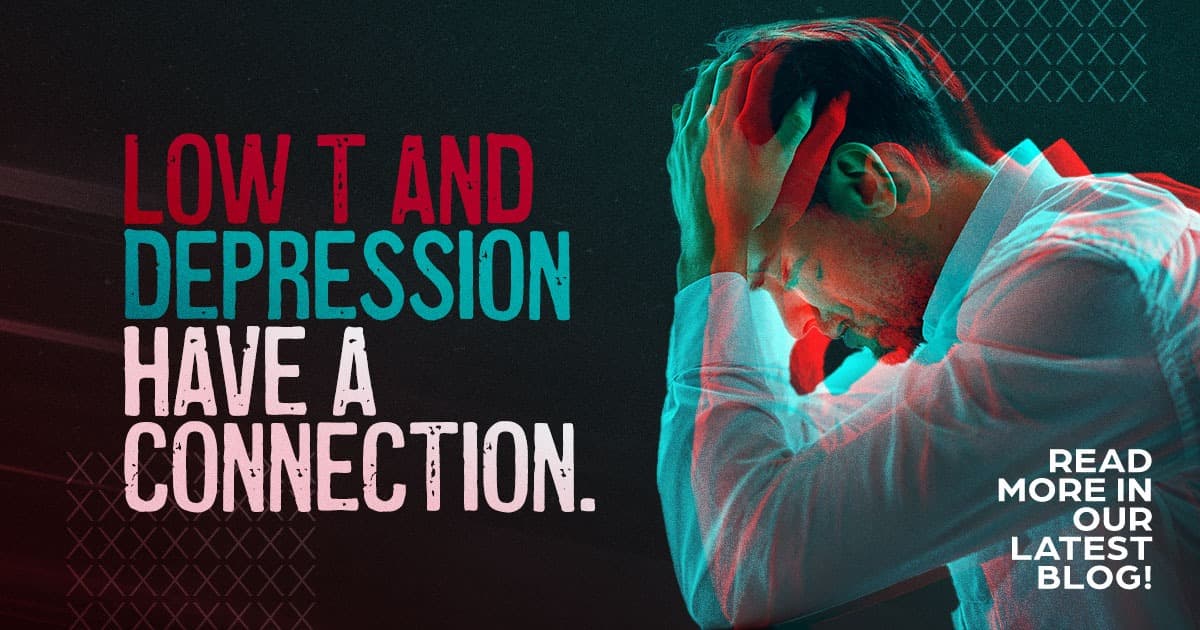Lack of energy, anxiety, and irritability might indicate that you’re suffering from anxiety and depression. While you may feel down and a little out of sorts, it may not be depression but a connection with low T. A drop in testosterone levels often causes symptoms like depression. The good news is, if low testosterone is the reason you’re feeling down, there are options that can help.
Low T and Your Body
Both men and women have testosterone, but levels in men are significantly higher. It’s well-known that testosterone and manliness go hand-in-hand. At the same time, the sex hormone also plays a role in promoting health. For example, it keeps your bones strong and boosts the production of red blood cells. Testosterone also plays a vital role in enhancing mood and improving concentration.
While everyone’s testosterone levels start to decrease as they age, some end up with lower levels than average. For most men, testosterone levels peak in early adulthood and begin to decline around age 40. As your testosterone levels decrease, you might notice changes in your body. These include a decrease in the size of your flexed biceps and an increasingly larger gut. Not only does a reduction in the male hormone affect how you look, but it also affects how you feel.
Low T and Your Mood
The cells in your brain are equipped with testosterone receptors. When you have a testosterone deficiency, these receptors are, quite literally, left high and dry, which can lead to:
- Mood swings
- Irritability
- Stress
- Anxiety
- Depression
Many of these symptoms fall under “andropause,” the male equivalent of menopause in women. When it comes to your mental health, the result can be as life-altering as the physical effects of low T. Waning hormones can indirectly influence your mental and emotional health. For example, if low T is wreaking havoc on your sexual health, causing a loss of sexual desire or erectile dysfunction, this can lead to anxiety and stress. Also, it can affect how you sleep, which can then create further problems with moodiness out of sheer fatigue.
Treating Low T
If you are experiencing persistent depression and the other signs of low T, you should talk to your doctor to get evaluated. Testosterone replacement therapy has been shown to improve depression and other symptoms in men with low T.

If you have low testosterone, participating in clinical research studies looking into potential new options for low T may help. To learn more about enrolling low T studies here at Charlottesville Medical Research, call 434-817-2442 or visit our website today!
Sources:
https://lowtcenter.com/news-article/low-testosterone-mental-health/
https://www.menstclinic.com/blog/testosterone-and-depression-whats-the-connection
https://www.urosurgeryhouston.com/blog/how-low-testosterone-affects-your-mental-health


